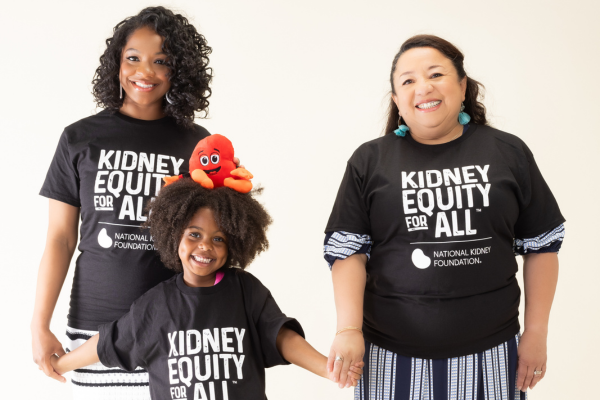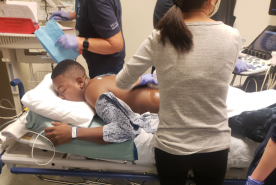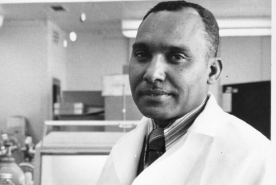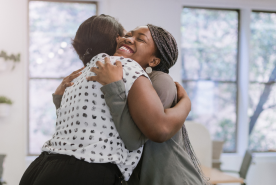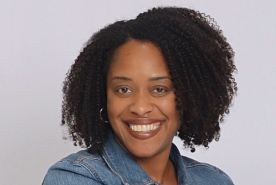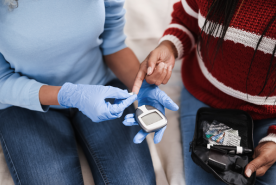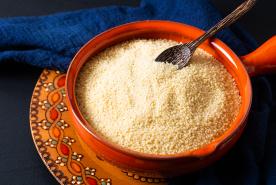May 10, 2024
Every year, millions of people get a health diagnosis that changes the course of their lives forever. For Nichole, this moment came in 2007. A few months after graduating high school, a routine physical for college revealed a devastating truth–Nichole’s kidneys were not functioning correctly.
Diagnosed with Kidney Disease
Nichole wasn’t expecting a call back from her doctor with bad news.
“I gave a urine sample during my physical. I was surprised when my doctor called to say my urine had a lot of protein in it. It was a sign that my kidneys might have an issue,” Nichole said. “It could have been a one-off event caused by an infection or a symptom of a larger issue. They scheduled me for a follow-up visit a few weeks later. ”
Nichole gave a second urine sample, hoping the protein decreased. Unfortunately, it was worse than before.
“The next step was a biopsy. It revealed I have focal segmental glomerulosclerosis (FSGS). FSGS scars the kidney’s cells so they don’t work correctly. It allows a lot more protein to come out of your kidney,” said Nichole. “I did what I could to manage it. For two years I traveled four hours one way from college to my hometown to see my nephrologist.”
The traveling took a toll on Nichole as her kidney function continued to decline.
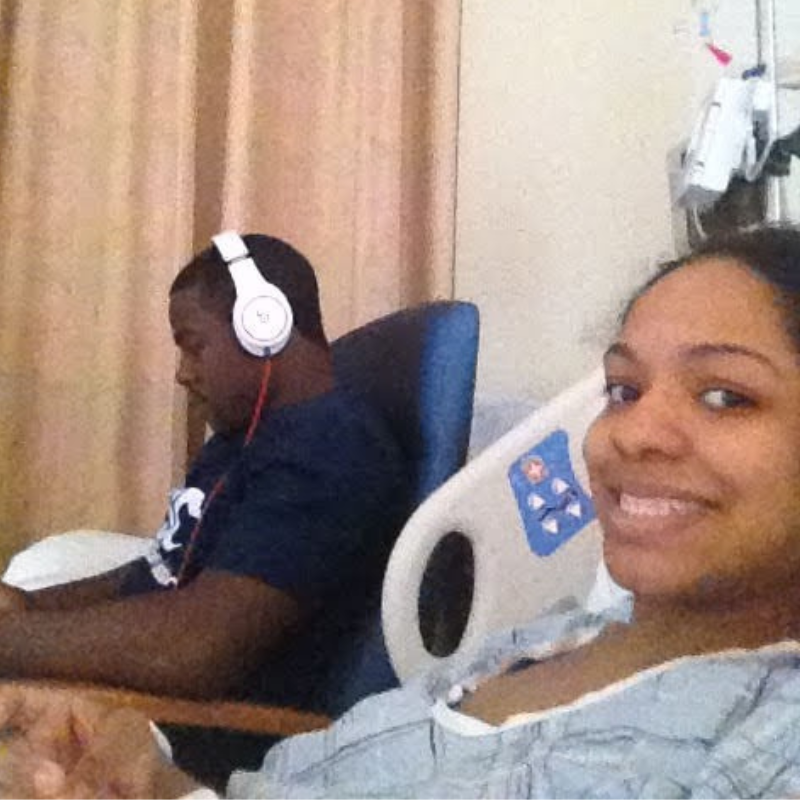
“I transferred to a college closer to home. It ended up being the best decision for me. I got much sicker during my final years of college,” Nichole said. “My kidney function declined. I felt ill, had no energy, and was bloated.”
Over the next two years, Nichole dealt with these uncomfortable symptoms as her doctors tried to save her kidneys.
“By the end of college, my kidneys couldn’t be saved. I needed a transplant,” said Nichole. “Brandon, my eldest brother, gave me a kidney. He saved me from dialysis. Other than monthly doctor's appointments, I lived life like everyone else. I had a career, saw friends, and pursued hobbies.”
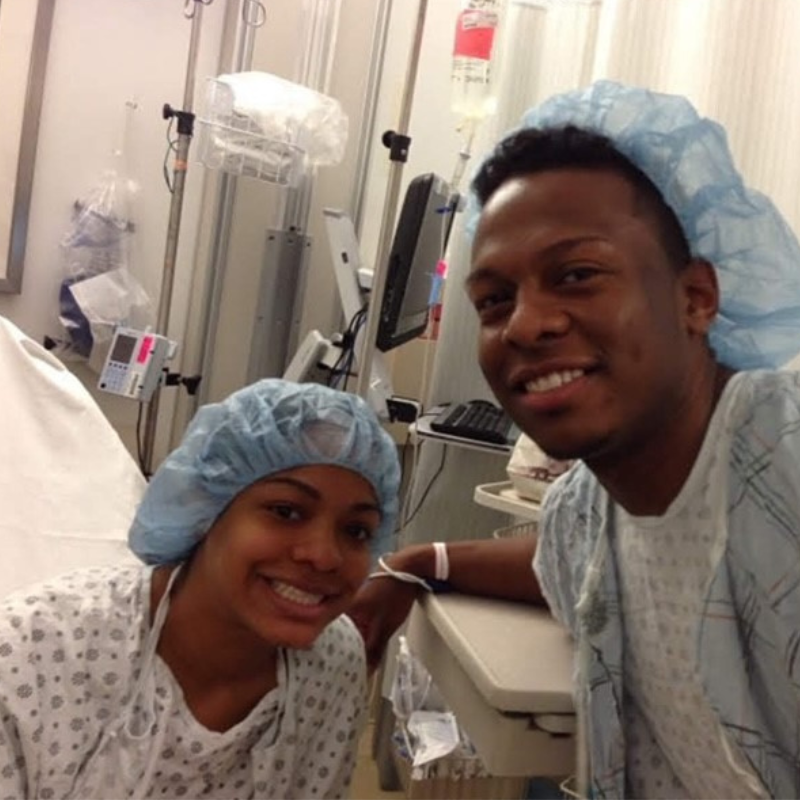
She even decided to have a baby.
Want to learn more about living kidney donation? Take NKF’s free course, “Becoming a Living Donor.”
Losing Her Transplant
In 2017, Nichole worked with her healthcare team to get pregnant.
“They switched up my medication and my pregnancy went perfectly until my daughter got bigger,” Nichole said. “Her favorite place to sit was on my transplant.”
Every few days, Nichole went to physical therapy and yoga to move her baby off the transplant. This routine continued until six weeks before Nichole’s due date. Doctors determined her creatinine was getting too high.
“I needed to get induced. I went into the hospital on a Tuesday night. They gave me a steroid to help my daughter's lungs develop more quickly,” said Nichole. “They induced me Wednesday but I didn’t give birth until Friday afternoon.”
It was a long, painful three days, but it was all worth it. Nichole’s baby was healthy, and her kidney function bounced back.
“I loved being a mom from day one,” Nichole said. “Nothing compares to the happiness I get from being with my daughter, watching her grow, and putting together fun activities for her to do."
Their days were filled with discovery, laughter, and learning. Then COVID-19 hit.
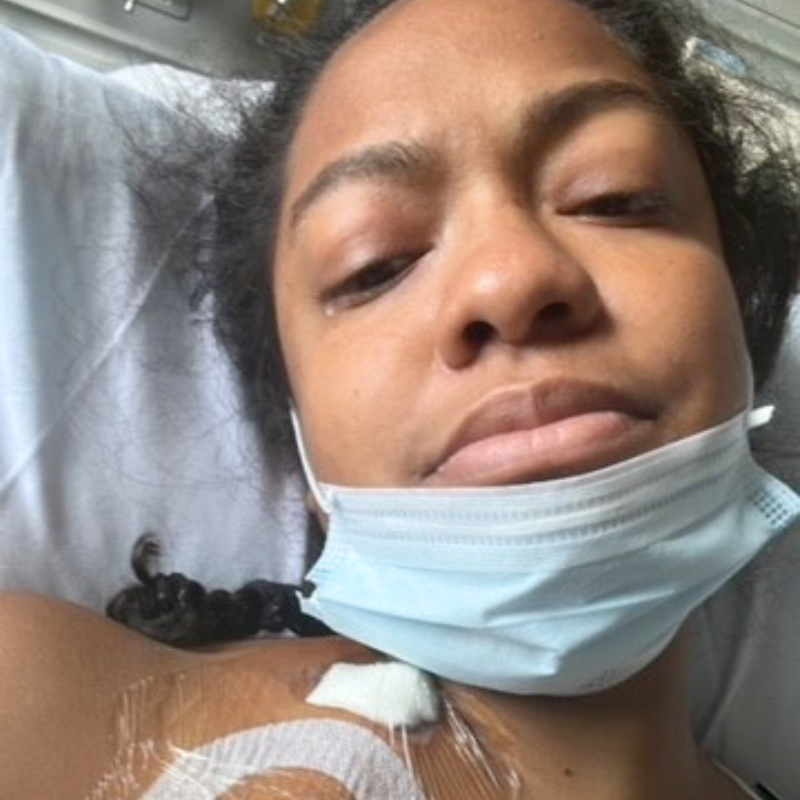
“I did everything my nephrologist recommended to stay healthy. I wore masks, avoided crowds, and homeschooled my daughter. I still caught it in December 2021,” said Nichole. “After my quarantine, I went to the doctor. My creatinine shot up. It didn’t look good for my kidney.”
A biopsy revealed that Nichole had new antibodies attacking the kidney. Nichole’s team started an intense treatment plan with hopes of saving it.
“My blood plasma was cleaned regularly. I took high-dose steroids and had medication infusions,” said Nichole. “I was allergic to the infusions and the side effects were horrible–hives, vomiting, and itchiness. My throat even closed up once. The steroids caused liquid to build up on my eyes. I still get shots in my eyes to combat that.”
By September 2023, it was clear nothing was working. Nichole got a catheter placed and received dialysis in the hospital for two weeks before training for home hemodialysis.
“My home dialysis nurse was incredible. She was kind and informative while teaching me,” said Nichole. “Home hemodialysis was a lot of work but the best choice for me.”
Learn more about home hemodialysis.
Family Saves the Day Again
Nichole’s mother, Judith, jumped into action the moment she learned her daughter’s transplant was failing.
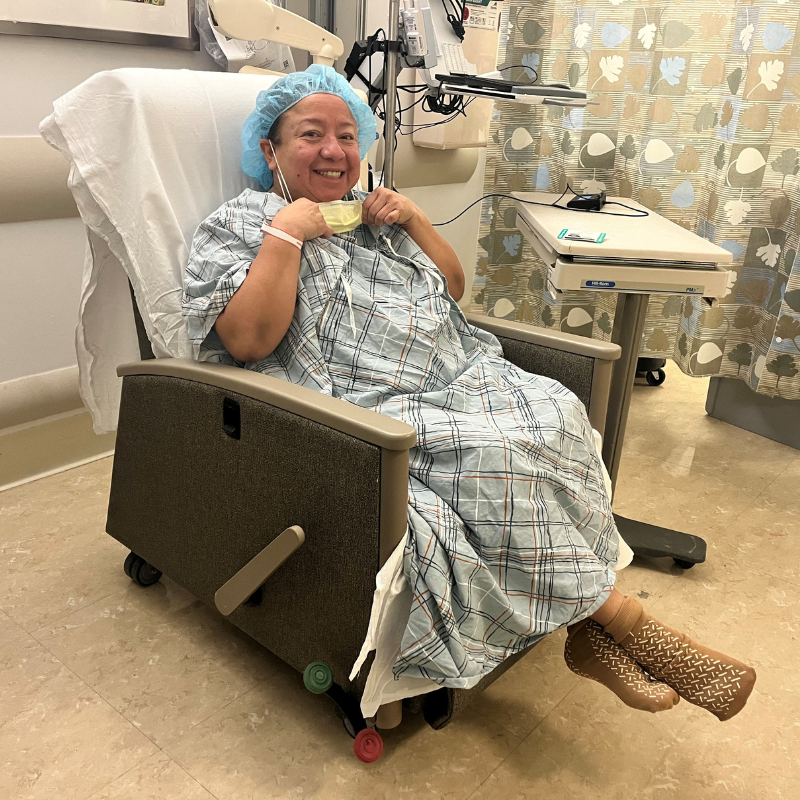
“My mom started the living kidney donor evaluation in October 2023. By February 8th, 2024 we were in surgery. The transplant went perfectly,” said Nichole. “My mom went home the next day. I was only in the hospital for three days. I worked hard to get back home to my daughter.”
During the past few months, Nichole has learned a lot about herself and her new kidney, which is more sensitive to medicine and requires a monthly thirty-minute medication infusion.
“This kidney feels different from my other but I am so grateful to my mother,” Nichole said. “Despite my gratitude, I feel guilty for catching COVID, losing my first transplant, and taking a kidney from another family member. FSGS doesn’t go away so it could attack this kidney. My little girl knows this transplant may fail someday. She wants to give me a kidney when she gets older. That’s another burden on my mind.”
Despite these lingering fears, Nichole is hopeful for the future.
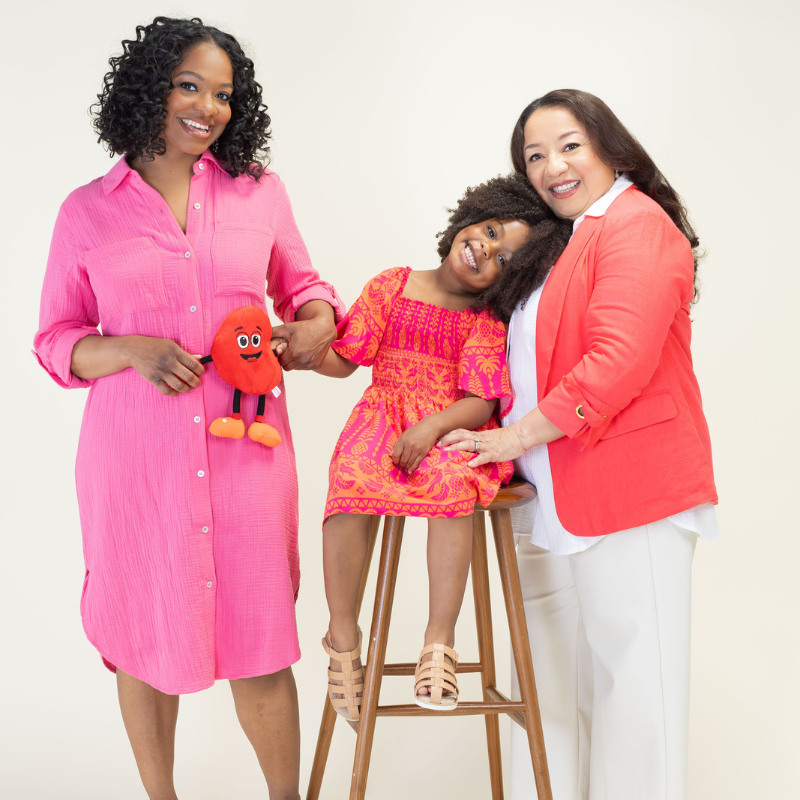
“It took a year after my first transplant to get back to normal. I'm hopeful it’ll be the same with this one,” said Nichole. “I’m looking forward to many good years with my daughter and family.”
From gratitude and excitement to guilt and sadness, receiving a transplant from a loved one can bring on a wide range of emotions. You need not face them alone. NKF Peers is here to help.
